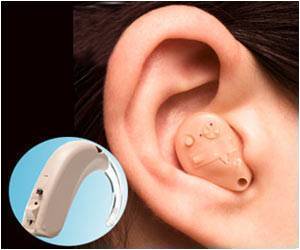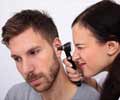
"In most cases, patients will have multiple visits with several physicians and undergo extensive testing before a diagnosis is made. There's also been a lack of one or more uniformly accepted treatments, or a consensus on how to counsel patients who do not fully recover their hearing," says Dr. Stachler.
"By focusing on opportunities for quality improvement, the guideline should improve diagnosis, reduce unnecessary tests and imaging procedures, and improve hearing for patients affected by sudden hearing loss."
The diverse panel of medical experts – which included Henry Ford's Kathleen L. Yaremchuk, M.D., chair of the Department of Otolaryngology-Head & Neck Surgery, and Christopher A. Lewandowski, M.D., a physician in emergency medicine – developed the guideline after reviewing the literature and reaching a consensus for patient diagnosis, management and follow-up care.
Sudden hearing loss is the rapid-onset – generally during a 72-hour period – of hearing impairment in one or both ears. Patients typically report having a feeling of a full or blocked ear. In many cases, evaluation and treatment are often delayed since its symptoms are so common and non-specific, according to Dr. Stachler.
Causes of sudden hearing loss range from infection and trauma to inner ear problems like Meniere's disease.
Advertisement
- Recommendations to help clinicians distinguish conductive hearing loss from sensorineural hearing loss in patients with sudden hearing loss. Both are common causes of hearing loss, but they have very different treatment strategies.
- Information to better educate patients about the benefits and risks of medical intervention.
- A range of amplification and hearing assistive technology available to those patients with incomplete recovery of hearing.
- Recommendations against clinicians ordering computerized tomography (CT) of the head/brain as part of the initial patient evaluation.
The guideline is intended for all clinicians who see adult patients, ages 18 and older.
Advertisement
The complete guideline is published as a supplement to Otolaryngology-Head and Neck Surgery.
Source-Eurekalert










